Mozambique: Maria de Lurdes Mutola calls for commitment to girls and women in sports - Watch
Mozambique slips down press freedom ranking – AIM report
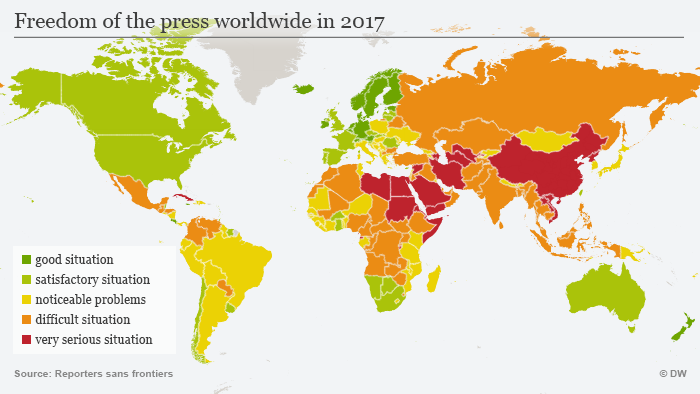
Mozambique has slipped six places in the press freedom rankings drawn up every year by the international NGO, Reporters without Borders (RSF).
Mozambique fell from 93rd position in the rankings in the 2017 RSF index, to 99th in the 2018 index, published this week. But Mozambique’s score, on which the rankings are based, is virtually unchanged – 31.05 in 2017 and 31.12 in 2018.05.04.
RSF explains that the score is compiled from responses by experts (media professionals, lawyers and sociologists) to a questionnaire distributed online and translated into 20 languages, combined with quantitative data on abuses and violence against journalists. A team of specialists keeps a tally of all known abuses against media outlets and professionals, relying on a network of correspondents in 130 countries.
Among the factors that go into calculating a country’s score, in addition to abuse and violence, are pluralism in the media, media independence, self-censorship, and the legislative framework for reporting.
A perfect score would be zero, and a few countries in northern Europe approach this – Norway is top of the index with a score of 7.63, followed by Sweden with 8.31 and Holland, with 10.01.
At the other end of the index are countries whose score approaches 100, and are regarded as hellholes for journalists. As usual, North Korea comes bottom of the 180 countries classified, with a score of 88.87. The roll-call of disgrace also includes Eritrea (84.24) and Turkmenistan (84.2).
The African country with the best score is Ghana (18.41, putting it in 23rd position), followed by Namibia (20.24, 26th place), and South Africa (20.30, 28th).
Mozambique’s near static score means that six countries that were below it in the 2017 index, improved enough to overtake it. They are Tunisia, East Timor, Liberia, Kenya, Panama and Lebanon.
RSF comments on Mozambique that “At an event marking World Press Freedom Day in 2017, President Filipe Nyusi’s government recognised the importance of the role played by journalists in promoting democracy and promised to guarantee a favourable environment for the freedom to inform. The media nonetheless suffer from a lack of resources and training. Journalists and media who upset the authorities continue to be exposed to threats and intimidation, with the result that self-censorship is widespread, especially in rural zones”.
But no Mozambican journalists or other media professionals were killed in 2017, the period covered by the latest index.
The rankings and scores in the 2018 RSF index for all members of the Southern African Development Community (SADC) are as follows:
Country: Ranking – Score
- Namibia: 26 – 20.24
- South Africa: 28 – 20.39
- Botswana: 48 – 25.29
- Madagascar: 54 – 26.20
- Mauritius: 56 – 26.45
- Malawi: 64 – 27.43
- Lesotho: 68 – 28.78
- Seychelles: 85 – 30.17
- Tanzania: 93 – 30.65
- Mozambique: 99 – 31.12
- Zambia: 113 – 35.36
- Angola: 121 – 38.35
- Zimbabwe: 126 – 40.53
- Swaziland: 152 – 51.46
- DR Congo: 153 – 51.60
RSF considers countries with a score between zero and 15 as “good”, and those with scores between 15.01 and 25 as “fairly good”. Countries with scores of between 25.01 and 35 (which includes most of the SADC region) are “problematic”, those with between 35.01 and 55 are “bad”, while any country with a score of over 55 is “very bad”.
At a meeting in Maputo on Thursday to mark World Press Freedom Day, the executive director of the Mozambican chapter of MISA (Media Institute of Southern Africa), Ernesto Nhanale, said that in 2017 there were 21 known cases of violations of press freedom in Mozambique (such as threats, assaults and censorship) compared with 11 in 2016.
The chairperson of MISA-Mozambique, Fernando Goncalves, noted that recent attacks on journalists, including the kidnapping and torture of Ericino de Salema, who was a regular guest on a Sunday night television chat show, and the physical assault by a manager of a private commercial complex against cameraman Helder Mathwassa, “do not contribute to a positive image of Mozambique” (these events happened in the past two months, and so are not covered by the latest RSF index).
The General Secretary of the National Journalists’ Union (SNJ), Eduardo Constantino, recognised that Mozambique possesses one of the most liberal press laws in Africa – but recently that law has been violated.
“When a journalist who is carrying out his professional duties is physically attacked, that is an indication that something is going wrong, with the aggravating factor that the assailant is acting in the conviction that he enjoys impunity”, he said. “We cannot talk of democracy and freedom of expression when the freedom of the press is called into question”.
The Deputy Minister of Justice, Joaquim Verissimo, told the meeting that the Mozambican government recognises the media as one of the pillars of the democratic state, and promised that violations of press freedom will be investigated.
“Under our laws, this violence is a crime”, he said, and should be treated as such by the courts. He assured his audience that the government “is bringing legitimate pressure to bear so that the relevant bodies clear up all these cases in good time”.


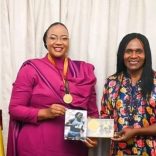
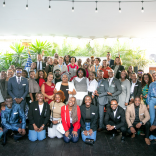

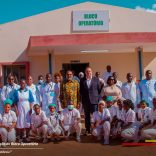
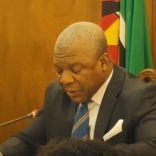
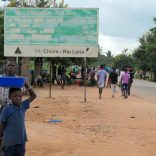





Leave a Reply
Be the First to Comment!
You must be logged in to post a comment.
You must be logged in to post a comment.